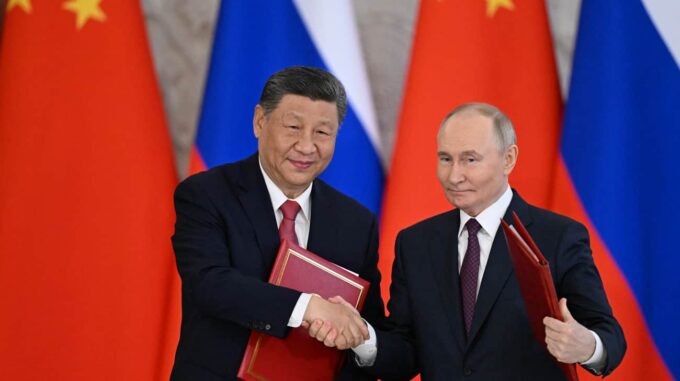The Chinese leadership openly supported the Kremlin’s position on the war in Ukraine, causing significant resonance in the global political science community

President Xi Jinping's visit to Moscow on May 8 was marked by statements reaffirming the close relationship between the two countries regarding their attitude towards the Ukrainian crisis. According to Reuters, during the official meeting of the leaders of China and Russia, the head of the PRC expressed his support for Putin, describing him as an important ally in building a new world order. He also emphasized that Moscow and Beijing share a common stance on the conflict in Ukraine, and that these views could become a key factor in shaping the international order. After the negotiations, the leaders issued a joint statement noting that the resolution of the Ukrainian crisis is only possible through the elimination of its root causes. However, this wording has prompted significant critical remarks, as it contains standard messages of Russian propaganda. Specifically, it speaks about the need to overcome the so-called "NATO expansion threat," "discrimination against Russian speakers," and restrictions on the culture and media of the Russian minority in Ukraine. Experts analyzing this document point out that the formulations justifying Russian aggression are sufficient in the joint statement to understand that China affirms its support for Moscow's policy regarding the Ukrainian crisis. In his speech, Xi Jinping stated that Russia and China should be "genuine steel friends" who have gone through hundreds of tests and proven their solidarity in the most difficult situations. He added that the countries intend to strengthen bilateral coordination, particularly in the military sphere, and counter the so-called "dual containment" by the United States, aimed at undermining the strategic independence of both states. Furthermore, the leaders announced their intention to personally oversee the priority areas of cooperation, focusing on increasing trade and investment volumes by 2030. The history of Putin’s and Xi’s acquaintance is longstanding: in February 2022, they signed the "boundless partnership," less than three weeks before Russia’s large-scale invasion of Ukraine. It is also important to note that China remains Russia’s largest trading partner, providing Moscow with economic support that has helped mitigate the impact of Western sanctions. The background to this visit includes reports that on May 7, President Xi Jinping arrived in Moscow to participate in the Victory Day parade on May 9—a symbolic event highlighting the special relations between the two countries. In the world, such overt displays of support for Moscow from Beijing raise concerns about further escalation of the conflict and changes in the geopolitical balance of power.

